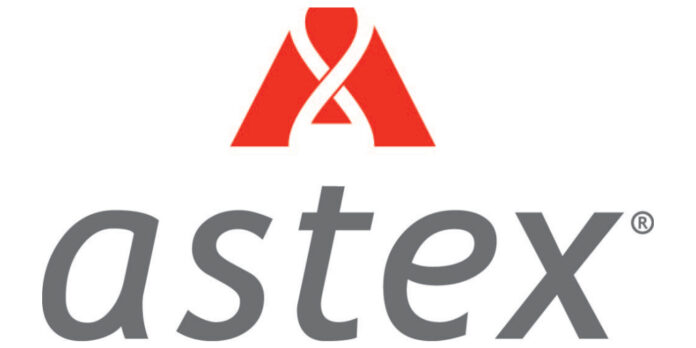PLEASANTON, Calif.– Astex Pharmaceuticals, Inc., a wholly owned subsidiary of Otsuka Pharmaceutical Co. Ltd., based in Tokyo, Japan, today announced updated clinical data, including median overall survival (mOS), from the ASCERTAIN phase 3 trial of INQOVI®, the company’s orally administered fixed-dose combination of decitabine and cedazuridine (ASTX727 or DEC-C) in adults with intermediate and high-risk myelodysplastic syndromes (MDS) including chronic myelomonocytic leukemia (CMML). mOS was 31.7 months.
The data were featured in a presentation given today at the 16th International Congress on Myelodysplastic Syndromes in Toronto, Canada, by Michael Savona, MD, Professor of Medicine and Cancer Biology, Department of Internal Medicine at Vanderbilt University School of Medicine, Tenn., on behalf of the study investigators.
The ASCERTAIN clinical trial was designed as a randomized crossover study comparing oral decitabine (35mg) and cedazuridine (100mg) fixed-dose combination tablet given once daily for 5 days on a 28-day cycle to IV decitabine (20mg/m2) administered as a daily 1-hour IV infusion for 5 days on a 28-day cycle, in the first 2 cycles. Patients continued to receive oral decitabine and cedazuridine from Cycle 3 onwards. The primary endpoint data for the study of total 5-day decitabine area-under-the-curve (AUC) equivalence of oral decitabine and cedazuridine and IV decitabine was previously presented at the American Society of Hematology Annual Meeting in December 2019.1 The oral/IV decitabine 5-day AUC was 98.9% with a 90% Confidence Interval between 92.7% and 105.6%.
Safety findings from the study were similar to those anticipated with IV decitabine, with incidence of cytopenias slightly higher with INQOVI during Cycle 1 compared to IV decitabine. The most common adverse events (AEs) of thrombocytopenia, neutropenia, and anemia were consistent with expected AEs with parenteral hypomethylating agent treatment.
In the more mature data set used to evaluate overall survival, the complete response (CR) rate for evaluable patients was 22%, with an overall response rate (CR + Partial Response + Marrow CR + Hematological Improvement) of 62%.
“Taken together, the ASCERTAIN phase 3 study data support considerable therapeutic utility of oral decitabine and cedazuridine in the treatment of patients with MDS and CMML,” said Co-Principal Investigator of the ASCERTAIN phase 3 study, Michael Savona, MD. “The fixed-dose combination of decitabine and cedazuridine is the only available oral DNA methyltransferase inhibitor / hypomethylating agent that has demonstrated equivalent exposure to an IV form. The median overall survival data from this study makes oral decitabine and cedazuridine an alternative option to parenteral administration of decitabine for patients with these diseases.”
Added Timothy Whitten, president and CEO of Taiho Oncology, Inc., Astex’s commercialization partner for INQOVI in the United States: “We are encouraged by data from the ASCERTAIN trial that continue to show oral decitabine and cedazuridine is a promising treatment option for patients living with MDS and CMML. Importantly, patients can benefit from the convenience of an at-home hypomethylating agent treatment and potentially reduce the number of office visits and associated travel.”
Based on the data from the ASCERTAIN clinical program, INQOVI is being investigated in combination with other agents in hematological malignancies, according to Harold Keer, MD, PhD, chief medical officer of Astex Pharmaceuticals, Inc. “The first of these studies is investigating the all-oral combination of decitabine and cedazuridine with venetoclax for the treatment of AML. We are extremely grateful to all the patients, caregivers, partner research and manufacturing organizations, as well as the healthcare professionals who have contributed to the clinical development program of oral decitabine and cedazuridine.”
INQOVI is an orally administered, fixed-dose combination of the approved anti-cancer DNA hypomethylating agent, decitabine, together with cedazuridine,2 an inhibitor of cytidine deaminase.3 By inhibiting cytidine deaminase in the gut and the liver, INQOVI is designed to allow for oral delivery of decitabine over five days in a given cycle to achieve comparable systemic exposure to IV decitabine. The phase 1 and phase 2 clinical study results have been published in Lancet Haematology4 and Blood,5 respectively.
INQOVI was approved in July 2020 by the U.S. Food and Drug Administration (FDA) and by Health Canada. INQOVI is the first and only oral hypomethylating agent approved by the FDA and by Health Canada for the treatment of adults with intermediate and high-risk MDS including CMML.6
Commercialization of INQOVI in the U.S. and Canada is conducted by Taiho Oncology, Inc. and Taiho Pharma Canada, Inc., respectively. Astex, Otsuka and Taiho are all members of the Otsuka group of companies.


